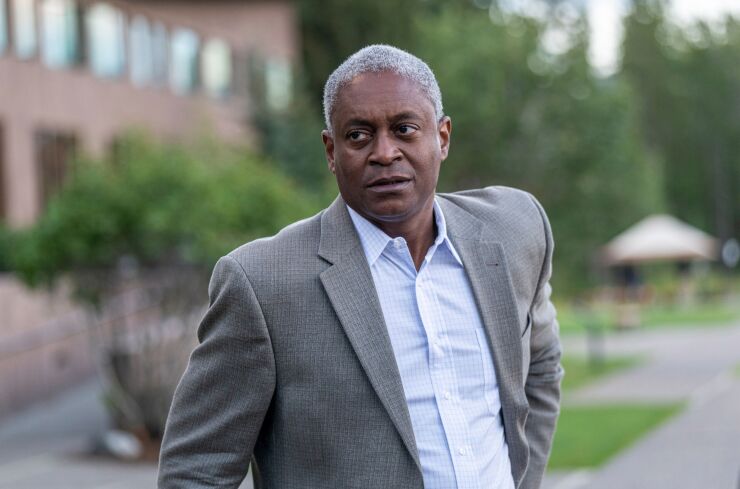
Tariff-induced price increases are coming and small businesses will be the first to hike, according to one of the Federal Reserve's top policymakers.
The effects of higher tariffs have been minimal thus far — with overall inflation edging up only slightly since the new rates went into effect — but Federal Reserve Bank of Atlanta President Raphael Bostic said that with the average effective tariff rate increasing more than fivefold since the start of the year, those costs will inevitably be passed along to consumers.
Speaking during an event hosted by the Florida Institute of CFOs on Thursday morning, Bostic said smaller businesses will likely cave into raising prices sooner than their larger counterparts, noting that they have fewer ways to get around tariffs and less capacity to absorb them.
"We're getting very clear signals that small businesses are feeling the stress and strain in pretty acute ways," Bostic said.
He added that the "vast majority" of small businesses in the U.S. rely on just one supplier for many of the inputs, with those suppliers often being located in China or Vietnam — which face some of the highest overall import costs under the new Trump tariff regime. Compared to larger companies, which often have multiple suppliers or even purchasing power sufficient to compel their trade partners to eat the cost of the tariffs, small firms will have a much harder time keeping end prices the same.
"That creates direct exposures in ways that a smaller company just doesn't have the ability, the capability, to adjust to very quickly, and so we're starting to hear those stresses," Bostic said. "Those are the ones, the types of businesses that I think are going to be least able to forebear, and at some point they're going to have to move prices just to address and reflect the reality of their income, their increased cost structure."
Bostic also said that responsiveness to tariffs will likely be dependent on how exposed given sectors are to higher import costs. He said companies that are facing higher tariffs may be more reluctant to raise prices if most of their competitors do not have those same exposures. Conversely, he said, some companies seem to be willing to raise their prices to meet those set by tariff-exposed competitors, even if they are not directly affected by the new trade policies.
Given these various dynamics, Bostic said it is hard to gauge the exact impact of tariffs on prices. One thing that is clear, he said, is that the uncertainty around the cumulative effect of the new trade regime is holding businesses back from hiring and making key investments. Because of this, he expects the economy to continue slowing down in the months ahead.
Bostic pointed to the Bureau of Labor Statistics report from last week — which showed anemic hiring in July and revised down estimated job gains from the prior three months — as a sign of that weakening. He said it represented a newfound "churn and turbulence" in the economy that will force Fed policymakers to rethink their positions on their two mandates: full employment and price stability.
"The BLS numbers last week to really raise the question as to whether we're still at full employment or whether we're moving away from it in a way that should mean that the risks [to our] two mandates, are much more in balance, as opposed to being inflation is the big risk, and employment is not," Bostic said. "That's the thing that me and my team will really be having — I'll call them discussions, but will be more like arguments — about in the next few weeks leading up to the meeting in September."






